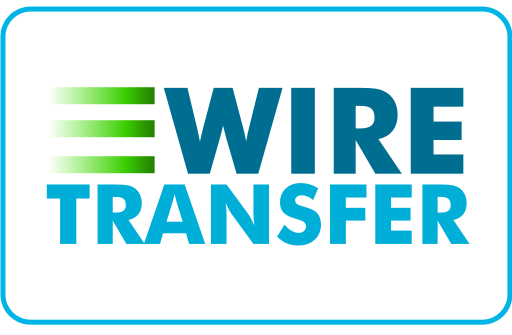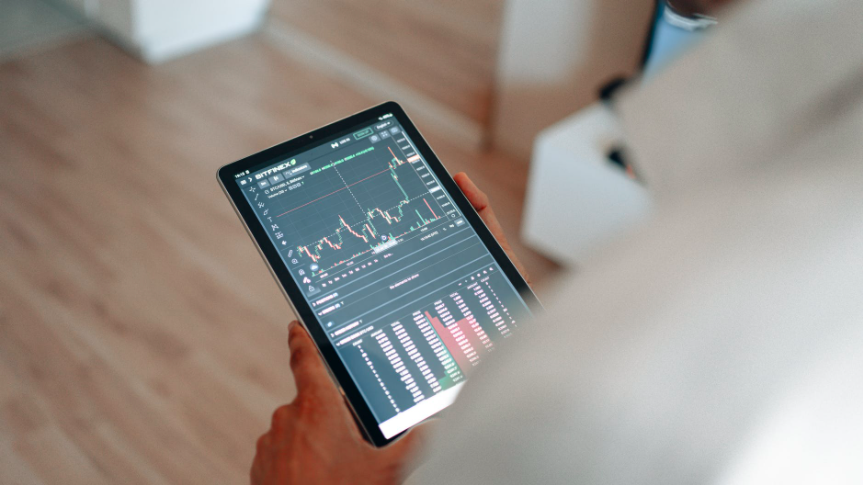Wire Transfer

A wire transfer is the electronic transmission of money between two banks or financial institutions. Transactions can be either domestic or international. Today, it is a popular account deposit method for traders due to its reliability and simplicity. Our review is an introduction to bank wire transfers and will focus on their use in trading. We will cover the step-by-step process to make a wire transfer to your trading account, how long a transfer can take to clear, regulation and protection, typical fees and more.
Brokers in United States with Wire Transfer






























































































































How Wire Transfer Payments Work
History
The wire transfer payment solution originated in the 19th century. The concept was launched in 1872 by the Western Union Telegraph Company, more recently known as Western Union. The payment infrastructure became increasingly popular throughout the late 19th century, following a boom in global industrialisation. The need for secure payments essentially increased as people began collaborating overseas for goods and services.
There are now many global brands hosting both domestic and international wire transfer services, meaning a solution is available wherever a merchant is located. Recognised network brands providing wire transfers include SWIFT, PayPal, TransferWise, Revolut and InstaReM.

What Is It?
The straightforward definition of a bank wire transfer is ‘the electronic transaction of funds between two banks or financial institutions’. No physical money is involved, it is simply an exchange of information. Some examples of accepting institutions include Bank of America, NatWest, Santander, Barclays and Metrobank.
The term ‘wire transfer’ stems from the idea that financial hubs use telegraphic connections to execute transactions. Secure network systems, such as SWIFT, process the information and communicate details of the payment to the receiving bank. As an online process, the payment method enables customers to initiate the transfer of funds on an international scale.
International Wire Transfer
International wire transfers involve overseas transactions of funds from one country to another, for example, from a bank account in the UK to a bank account in the USA. The most common process is via the SWIFT network. It is the global standard for transferring money from one country to another. As not all banks have direct connections, the SWIFT banking system initiates the global transfer between participating banks. Required information varies between each bank and institution. Typically, you will need to provide the recipient’s name, transfer sum, international routing number or SWIFT/BIC code, to send funds. Customers will be prompted to complete all relevant fields and payments cannot be completed without this. Settlement times are often slightly longer vs domestic transfers due to clearing requirements.
Domestic Wire Transfer
A domestic wire transfer is a payment between two banks or financial institutions within the same country. The information requirements are similar to that of the international transfer, however, no SWIFT code is needed. Domestic wire transfer confirmation times are typically quicker vs an international transfer as it only has to go through a domestic automated clearing house (ACH).
Transaction Times
Payments to an online trading account via wire transfer can be timely. Importantly, processing times vary depending on your transfer network, currency and bank provider. Some bank wire transfers are subject to traditional ‘banking hours’, meaning that payments may only be processed between 9 am and 5 pm, Monday to Friday. International transfers can take a few days to be received. All US payments must pass through the automated clearing house (ACH) network which can take an additional one working day vs domestic payments.
Remember, your broker may also have specific processing timelines which can cause a delay in funds reaching your trading account. Although capital can be processed within one working day by your financial institution, deposits to eToro for example, are subject to a four to seven day processing time for funds to be credited to your trading account. Withdrawal times may also vary. XM bank wire transfers can take up to five working days for example.
Pricing Review
Fees vary depending on the final destination, bank provider and transaction amount. Wire transfers can be much more expensive vs some electronic transfer methods with average fees anywhere between $5 to $50. For example, the wire transfer fee charged by HSBC is $5 for any transfers outside of the EEA. Bank of America and TD Bank charge $50 for all U.S. Dollar international wire transfers.
Typically, online trading brokers absorb fees for wire transfer deposits. However, our review did find some charges for withdrawals. Coinbase, for example, charge a $25 flat fee for a fund transfer from a trading account. It is also worth noting that your broker and financial institution/bank may have a minimum and maximum transaction amount. Bank of America customers, for example, have a wire transfer limit of $3,500 per 24 hours.
An additional exchange rate cost may also be incurred if you are trying to deposit to an account outside of the recipient’s bank currency. This includes depositing to a trading account in a non-base currency. As a result, it is best practice to check any charges on the broker’s deposit and withdrawal page before opening a live account.
Security
A wire transfer is a relatively safe payment method, making it easy for traders to deposit or withdraw from an investment account with confidence. With that said, protection schemes differ between bank providers and money transfer services.
As the process is completed by authorised personnel via an encrypted messaging service, the likelihood of scams or fraudulent activity is reduced. However, it is your responsibility to take precautionary steps to protect yourself from unknown recipients or data input mistakes. This includes providing the wrong recipient’s bank details. New transfer rules were also implemented in June 2022 for domestic wire payments. Senders are now required to supply a recipient’s full name or a registered trading name that matches with the bank account on record. Transactions will be rejected if this is not correct. Alternative methods such as using a credit card may be better when sending money to a new or unknown person as these can provide additional security.
Regulatory authorisation is provided in some countries to protect consumers against wrongdoing and fraudulent activity. Regulation safeguarding schemes include the Internal Revenue Service (IRS) for US Dollar wire transfers over $10,000 and the Wire Transfer Regulation (WTR) for UK and EU online transactions. Sending and receiving parties must independently verify their identity. It is also worth checking that your broker has top-tier regulatory authorisation and provides access to additional protection such as compensation schemes.
Note, once a payment is initiated via this method, it is difficult to cancel.
Pros of Wire Transfer for Traders
Benefits of trading with wire transfers include:
- Various Methods – A bank wire transfer doesn’t necessarily have to be made online. It is fully flexible and payments can be initiated within a local bank branch, post office or even over the phone
- Availability – Wire transfer payments are well recognised across various industries in Europe and worldwide. It is a common payment solution offered by many global brokerages so traders shouldn’t have a problem finding one
- Mobile Applications – As accessibility and speed become important in the volatile trading market, having convenient access to account funding methods is important. Today there are many mobile apps supporting wire transfer payments online so you can deposit to your swing trading account while on the go. App examples include Monzo, TransferWise and Wells Fargo
- Secure – Wire transfer payments are relatively secure. Tracking information can be sourced from corresponding banks and a receipt is provided to both the sender and receiver. Identity verification is typically required from both parties. Ensure your broker is regulated to provide accountability for safe payments. Questions or concerns about a payment that has gone missing or not been received to the end destination should be raised immediately to your registered bank
- International Payments – A wire transfer provides customers with a streamlined global payment solution regardless of currency or language restraints. Recognised banks hosting wire transfers include HSBC, Starling Bank and Nationwide. The message file format is recognised internationally so there are no process flow restrictions regardless of your broker’s location. You can essentially transfer money from any country such as from the US, Canada, or India to the UK, for example. Other countries that use bank wire transfers include Australia, Egypt, Kenya and Jamaica
Cons of Wire Transfer for Traders
Drawbacks to investing with wire transfers include:
- Working Hours Only – Some bank wire transfers are subject to traditional 5 days a week ‘banking hours’ which means payments may not be processed or cleared on a Saturday or Sunday. This is a major disadvantage vs some electronic payment solutions available 24 hours a day such as PayPal
- Bank Account Registration Required – Traders must hold an account with a participating bank to enable wire transfer payments, similar vs SWIFT. Minimum requirements to register for an account will vary by country but typically involve providing proof of residency including a zip code
- Cannot Reverse Payments – Wire transfer payments can be difficult to reverse or cancel once initiated. Always double-check deposit values and recipient details before submitting. Providing the wrong recipient address is a common mistake. Alternative methods such as a credit card may provide more protection for larger and more risky payments to new or unreliable receivers
- Slower Processing Times – The payment gateway does not provide instant account funding due to Automated Clearing House (ACH) requirements. These apply to domestic and international payments. Typical timings for international payments to clear can be up to five working days. Brokers may also have their own processing timeless which can cause a delay in funds reaching your account
- Expensive – Fees can be incurred by both the sender and receiver for domestic or international transactions. These charges are often flat fees so it may be cheaper to use local, low-cost infrastructure to make smaller value payments. Costly exchange rate fees may also apply if funding an account in a currency different from the accepted base currency. Look for a broker that will absorb these charges so they don’t eat into your profits

How to Make Wire Transfer Deposits & Withdrawals
Making a wire transfer payment to an online trading account is simple. Swing traders must register for a bank account to utilise it as a payment solution. Opening an account is usually quick and easy using an online application form for your chosen financial institution. This includes Lloyds Bank, HSBC, Nationwide and Discover Bank. Once complete, customers can initiate a transaction. The fund transfer process is activated via a bank-to-bank message flow within a secure network.
To make a deposit, locate the wire transfer logo on the payment section of your broker’s website and enter the payment amount. Remember, your bank provider or broker may have their own minimum or maximum deposit limits. Redirection to the funding interface is automatic. You will be required to enter relevant payment account details such as the purpose of the payment and recipient address. You may need to provide a routing number or SWIFT code depending on the destination. Some brokers may also require traders to complete KYC verification before being able to use the payment method for deposits and withdrawals.
The time taken for funds to show in your online trading account will vary by transaction value, currency and bank provider. A confirmation receipt will be provided for both parties.
Verdict
A wire transfer is an industry-standard payment method providing cross-border access. Services are integrated directly from your existing bank account, providing an easy and secure method to deposit funds. Trading clients should, however, be aware that processing times can be slower than alternative instant funding methods such as PayPal or Monzo.
FAQ
Can I Wire Transfer Online?
Yes, you can initiate a payment online. Wire transfers are electronic transmissions of money via the secure networks of two banks or financial institutions. No physical money is involved, it is simply an online exchange of information.
What Is The Difference Between A Wire Transfer Vs An Online Bank Transfer?
The terms ‘bank transfer’ or ‘wire transfer’ are used interchangeably. There is no difference and both indicate an electronic fund transfer from one person or entity, to another.
How Do I Make A Wire Transfer To A Trading Account?
Locate the wire transfer logo within your broker’s platform. Login to your trading account and initiate a payment. Minimum deposit requirements may apply. Follow the instructions on the screen and enter the required details such as a beneficiary name, registered address and reference. A routing number or SWIFT code may also be required.
Wire Transfer Vs Direct Deposit – What Is The Difference?
Wire transfers are online transactions of money to another domestic or international bank account. Direct deposits, on the other hand, are commonly used to send regular payments domestically such as paying employees via the company payroll.
Is A Wire Transfer Number The Same As A Routing Number?
To complete a wire transfer you will need to provide specific details. Each U.S Bank will have an ABA routing number. They are standardised and help accurately transfer funds from one account to another. Additionally, you will need to confirm the recipient’s address. Once a payment is initiated, you will receive a unique wire transfer number that can be used to track a fund transfer online.
